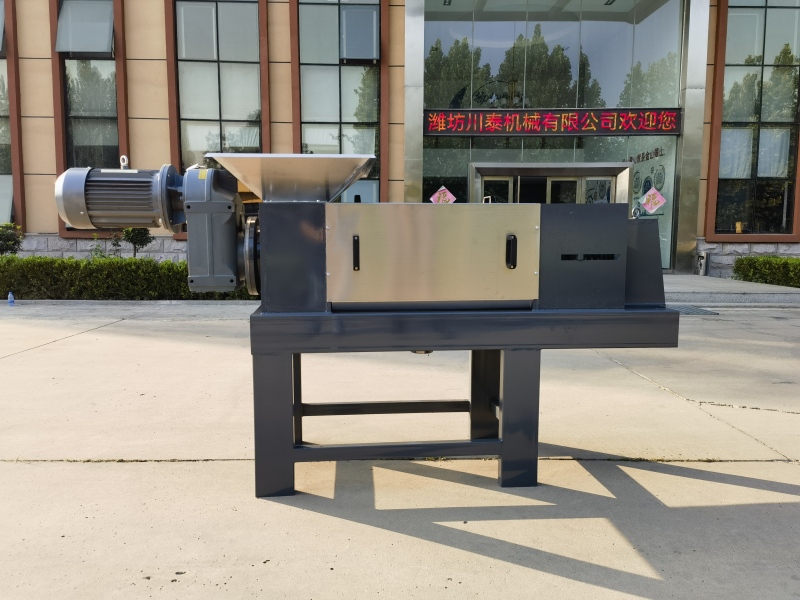
Dewatering screw presses are industrial machines designed to remove water or liquid from various materials, typically sludge or slurry. These machines play a crucial role in solid-liquid separation processes across diverse industries. The primary function of dewatering screw presses is to efficiently and cost-effectively reduce the moisture content of the material, resulting in a drier and more manageable end product. Below are the main functions and features of dewatering screw presses:
Solid-Liquid Separation:
Dewatering screw presses excel at separating solid particles from liquid components in a slurry or sludge. The screw mechanism helps in the gradual compression of the material, promoting the separation of water from solids.
Moisture Reduction:
The core function of these machines is to significantly reduce the moisture content of the processed material. This is essential in applications where a drier end product is required for disposal, reuse, or further processing.
Volume Reduction:
By removing water, dewatering screw presses contribute to the reduction in volume of the processed material. This is particularly valuable in waste management, as it reduces the volume of material that needs to be transported and disposed of.
Efficient Handling of Various Materials:
Dewatering screw presses are versatile and can handle a wide range of materials, including sludge from wastewater treatment plants, industrial slurries, and other liquid-solid mixtures.
Continuous Operation:
These machines are designed for continuous operation, ensuring a consistent and efficient dewatering process. This feature is especially beneficial in industrial settings where a continuous production flow is required.
Energy Efficiency:
Many dewatering screw presses are designed with energy-efficient features to minimize operational costs. They often incorporate mechanisms that optimize the dewatering process while consuming less energy.
Low Maintenance:
Well-designed dewatering screw presses are often built with durability and low maintenance requirements in mind. This is important for ensuring reliable and cost-effective long-term operation.
Automation and Control:
Modern dewatering screw presses may come equipped with automation and control systems, allowing operators to monitor and adjust various parameters to optimize performance.
Customization for Specific Applications:
Manufacturers often offer customization options to tailor dewatering screw presses for specific applications. This ensures that the machine is optimized for the characteristics of the material being processed.
In summary, dewatering screw presses contribute to the efficient separation of water from solids, resulting in a drier material with reduced volume. Their versatility, continuous operation, energy efficiency, and customization options make them valuable in a variety of industrial processes.




If your company wants to establish a business relationship with us, please briefly describe the cooperation intention and send an email to:chuantaiscrewpress@gmail.com























































































![[list:title]](/static/upload/image/20240528/1716877114510915.jpg)